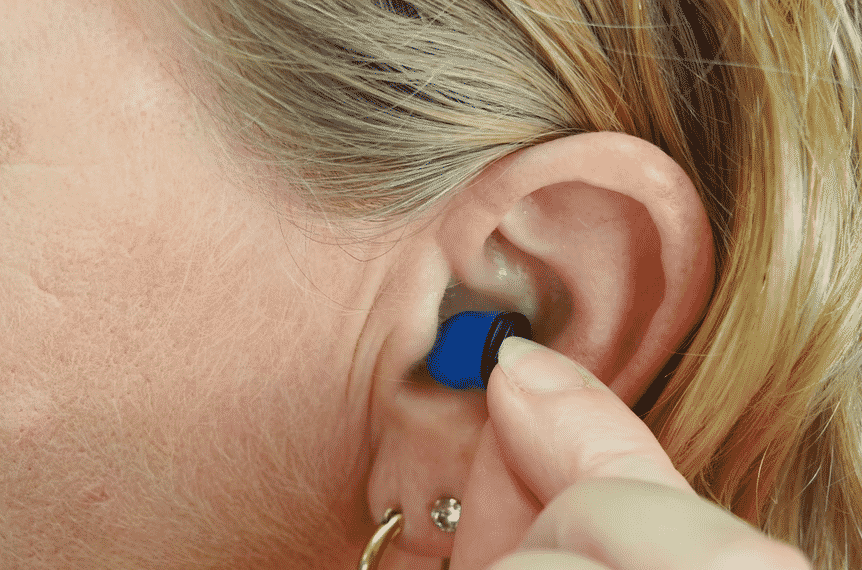Government Grants for Hearing Impaired
People with hearing problems should get the best hearing devices to help them fix it. Yes, there are advanced hearing devices available for the hearing impaired.
However, these devices are not ideal for everyone as they are expensive and not affordable!
If you are struggling with a hearing problem and looking for some resources to seek financial assistance, the first resource available is government grants for the hearing impaired.
These grants are designed for hearing-impaired individuals. This article provides everything you need to know about resources for the hearing impaired.
Government Grants and Financial Resources for Hearing Impaired
Federal grants are the primary source of financial assistance for the hearing impaired. The Hearing Loss Association of America offers information and support for people with hearing loss.
Individuals who can’t afford expensive assistive hearing systems should get financial assistance from this program.

Besides this, those with medical insurance coverage should seek assistance from the insurance provider. Insurance coverage for hearing aids varies, with many insurers not covering them.
The coverage includes buying hearing devices and unique treatments to fix the hearing problem.
If your medical insurance company doesn’t cover hearing issues, you should check for other resources available.
We have listed all the resources that could help you get financial aid. The list below contains federal resources and private organizations that may assist you in resolving your hearing problem.
Medicaid for Low-income Families
Low-income families have the particular advantage of Medicaid government-backed insurance. In some states, Medicaid provides coverage to individuals with hearing problems.
They, too, can receive benefits for treating hearing problems through Medicaid facilities. You must visit your state’s county and make an appointment with them to determine whether you are qualified.
3 Grants for Children with Hearing Problems
The government offers individualized education programs for children with different disabilities.
Children with hearing loss might receive financial assistance from the Individualized Education Program to purchase the latest technology equipment and pay for other expenses related to correcting their hearing problems.
The Individuals with Disabilities Education Act ensures access to public education for children with disabilities.
Children with disabilities should enroll in government programs to get direct benefits for their day-to-day needs.
1. Hearing Aid Banks
Local clinics offer many resources to locals. They organize special programs for minority communities and families with low income.
Hearing Aid Banks are run by local clinics. They provide assistive technology and hearing equipment at reasonable rates and help low-income families get assistive technology loans at low interest rates.
There are some states which provide particular loans for hearing-impaired individuals.
Non-profit organizations offer short-term hearing aid loan programs that provide financial support to those in need. The borrowed amount can be repaid in EMIs at no interest cost.
Individuals with hearing problems should search for such resources within their local areas, as many clinics provide low-cost services. They also offer helpful resources to get financial assistance.
2. Special Programs for Veterans
The US Department of Veteran Affairs provides services and financial assistance to military veterans and healthcare services, including hearing aids, to eligible veterans.
The appropriate branch will provide you with more information about coverage to fix the hearing problem or purchase an assistive technology device.
Besides this, some manufacturers provide additional discounts on their assistive listening systems and equipment to veterans and their family members.
Many active programs are available for veterans and their family members. They should approach such programs to get direct financial assistance.
3. Resources for School/ College Students
School and College students and other professionals might get financial assistance for hearing aids and assistive hearing systems through the state’s vocational rehabilitation agencies.
These agencies provide financial assistance to students on their ID cards. Students must attach the required documents to get financial support from the agencies.
Active employees should also get financial assistance to repair their hearing problems through assistive technology and hearing aid programs.
Vocational rehabilitation agencies provide employment support.
Students with hearing problems who come from low-income families are entitled to seek scholarships. Yes, the government offers special scholarships for the deaf.
Scholarships for deaf students support their education and are available from various organizations.
The Bottom Line:
In addition to federal and state government resources, many private organizations and foundations also provide financial assistance to individuals who cannot afford to buy expensive assistive hearing systems.
If they don’t get qualified through government resources, they should approach agencies and organizations that provide financial assistance at low interest rates.
Organizations may offer grants or financial assistance for hearing aids and assistive devices. They must present their income proof with other required documents for financial assistance.
See Also
Dental Grants for Low-Income Adults
Does Medicare Cover Hearing Aids?
Does Medicare Cover Dental Implants